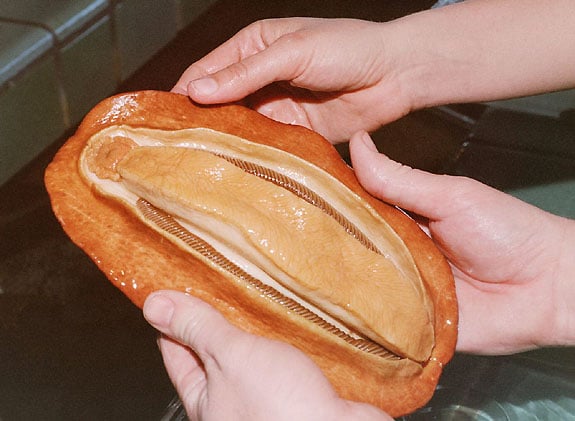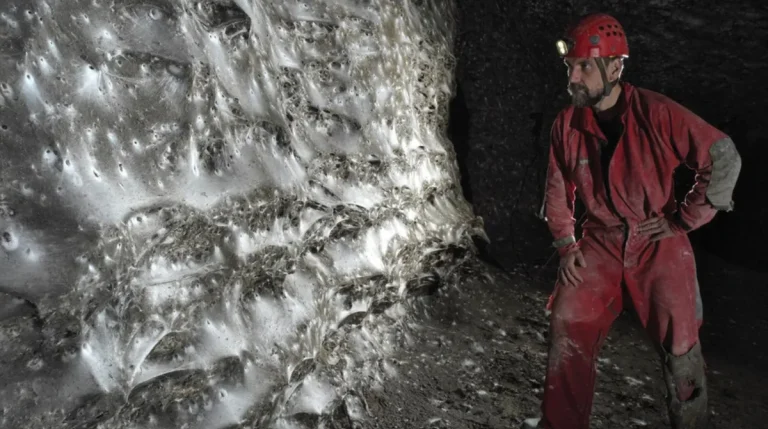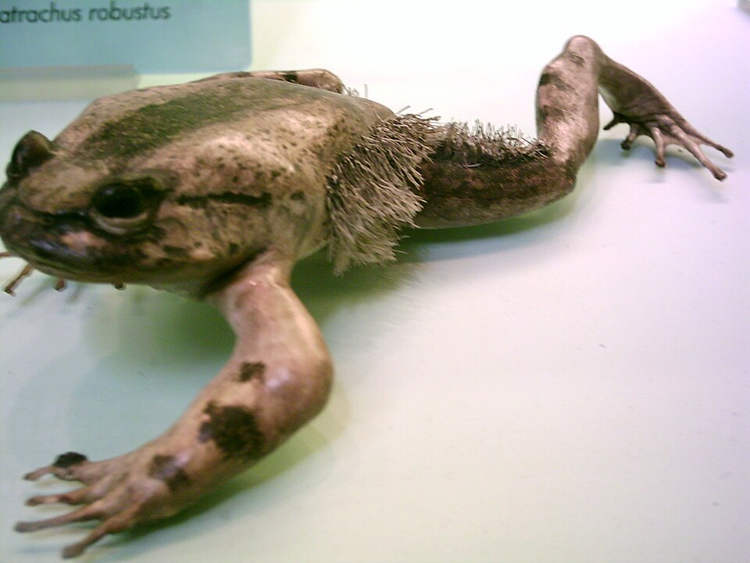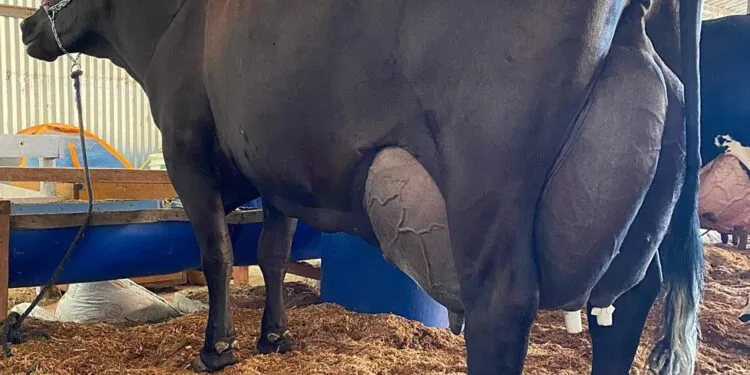The gumboot chiton, a marine mollusk also known as the Wondering Meatloaf, has teeth made of the hardest biological material known to man.
Magnetite is a geologic mineral commonly found in the earth’s crust, but it’s also somehow produced by the gumboot chiton and synthesized into rows of small teeth hard enough to scrape algae off of rocks. The top of these teeth is layered with magnetite, which makes them literally as strong as steel, but the root is also incredibly tough, thanks to another iron-like material that has never been observed in living creatures before – santabarbaraite. This unique combination makes the chiton’s teeth the hardest biological material in the world.

Photo: Professor Douglas Eernisse/Wikimedia Commons
“Santabarbaraite has high water content, which makes it strong with low density. We think this might toughen the teeth without adding a lot of weight,” Derk Joester, an associate professor of materials science and engineering at Northwestern University in Illinois, said of the chiton’s unique teeth.
Although the process through which magnetite and santabarbaraite are biologically synthesized has yet to be fully understood, research suggests that the incredibly strong teeth are formed in three stages. First, crystals of hydrated iron oxide (ferrihydrite) nucleate on a fiber-like substrate rich in chitin, after which these nanocrystalline particles convert to magnetite. Then, the magnetite particles begin to grow along these organic fibers, creating rods parallel to the mature teeth.
Interestingly, this whole biological process occurs at room temperature, and scientists think that properly understanding it could help them come up with new ultra-resistant nanomaterials.
This amazing creature reminded us of a sea snail with exceptionally durable armor. Crysomallon squamiferum, aka the scaly foot gastropod, has evolved to withstand the harsh seafloor around hydrothermal vents spewing out water at around 350°C.












